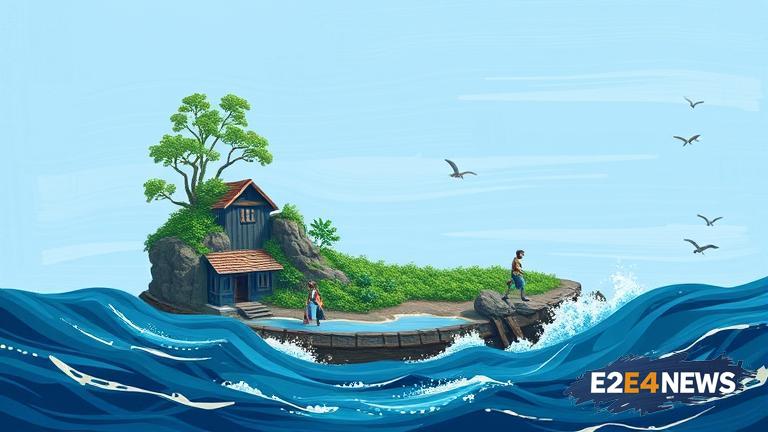The Partnerships in Environmental Management for the Seas of East Asia (PEMSEA) has recently outlined a comprehensive new ocean sustainability plan aimed at protecting the marine ecosystems in the East Asian region. This plan is a significant step towards promoting eco-friendly practices and reducing the environmental impact of human activities on the oceans. The plan focuses on several key areas, including the reduction of marine pollution, the promotion of sustainable fishing practices, and the conservation of marine biodiversity. PEMSEA has identified the need for a coordinated approach to address the pressing environmental issues facing the region’s oceans, including climate change, overfishing, and pollution. The organization has brought together stakeholders from governments, businesses, and civil society to develop a plan that addresses these challenges. The plan includes a range of measures, such as the implementation of sustainable fishing practices, the reduction of plastic waste, and the protection of marine habitats. PEMSEA has also emphasized the importance of international cooperation and collaboration to address the global nature of ocean sustainability challenges. The organization has called on governments, businesses, and individuals to work together to implement the plan and promote sustainable ocean management practices. The plan is expected to have a significant impact on the marine ecosystems in the region, including the reduction of marine pollution, the protection of marine biodiversity, and the promotion of sustainable livelihoods for communities that depend on the oceans. PEMSEA has also highlighted the economic benefits of sustainable ocean management, including the creation of jobs and the generation of revenue through eco-tourism and sustainable fishing practices. The organization has emphasized the need for a long-term commitment to ocean sustainability and the importance of monitoring and evaluating the effectiveness of the plan. The plan is also expected to contribute to the achievement of the United Nations’ Sustainable Development Goals (SDGs), particularly SDG 14, which focuses on the conservation and sustainable use of the oceans. PEMSEA has called on all stakeholders to support the implementation of the plan and to work together to protect the marine ecosystems in the East Asian region. The organization has also emphasized the importance of raising awareness and educating the public about the importance of ocean sustainability and the need for collective action to address the environmental challenges facing the oceans. The plan is a significant step towards promoting sustainable ocean management practices in the region and is expected to have a positive impact on the marine ecosystems and the communities that depend on them. The implementation of the plan will require the cooperation and commitment of all stakeholders, including governments, businesses, and civil society. PEMSEA has emphasized the need for a coordinated approach to address the environmental challenges facing the oceans and has called on all stakeholders to work together to promote sustainable ocean management practices. The plan is expected to contribute to the protection of marine biodiversity, the reduction of marine pollution, and the promotion of sustainable livelihoods for communities that depend on the oceans. The organization has also highlighted the importance of monitoring and evaluating the effectiveness of the plan and has called on all stakeholders to support the implementation of the plan. The plan is a significant step towards promoting sustainable ocean management practices in the region and is expected to have a positive impact on the marine ecosystems and the communities that depend on them. The implementation of the plan will require the cooperation and commitment of all stakeholders, including governments, businesses, and civil society. PEMSEA has emphasized the need for a long-term commitment to ocean sustainability and the importance of working together to address the environmental challenges facing the oceans.
